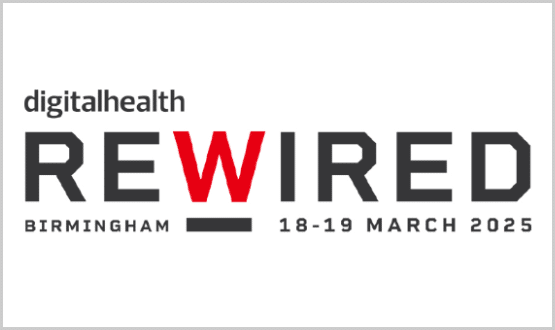The view of digital responses to Covid-19 through an operational lens
- 10 February 2021

Ahead of Digital Health Rewired 2021 next month, Lisa Emery, CIO at the Royal Marsden NHS Foundation Trust, explains how she’s looking at the digital response to the pandemic through an ‘operational lens’.
Although in some ways it feels a little soon to be thinking ‘what next?’; as we ticked over into 2021, we inevitably began reflecting on what we had achieved since March.
I am really looking forward to hearing the experiences of others during the New Normal Summit at Digital Health Rewired. I have long been an advocate for shared learning and it is vital, now more than ever, that we exchange knowledge and best practice to help each other through the pandemic.
As a leadership team, our attention turned back to some of the strategic projects that had been placed on hold while we responded to the pandemic.
The way we think about and describe ‘transformation’ has really been challenged; we now have new insight into the ways in which we interact with our healthcare colleagues to improve patient outcomes and staff experience.
Fundamental importance of tech
Certainly, it is clearer now, and to a wider audience, just how fundamentally important technology is in the healthcare setting. I don’t think I could possibly sum it up better than a quote from a recent article by Steven Van Roekel, COO at the Rockefeller Foundation: “…technology is never the answer to anything – but it’s part of the answer to almost everything”.
It’s a highly recommended read, and speaks of two key, relatable lessons from the Ebola epidemic. Firstly, the transformational potential of data; and secondly the central role that executives with an understanding of data and technology have in transforming their organisation’s operations. He recommends that CIOs take ‘more of a broader operational lens into their work’.
Certainly, personal experience tells me that that the importance of that ‘operational lens’ should not be overlooked. It never pays to make assumptions about what services need. For example, we found during our response to the pandemic that things like simply being able to kit out a clinic room with a decent desktop device and better network coverage has been transformational in terms of allowing the service to run virtual clinics and use the limited space in a more flexible way.
Small but impactful changes
Our opportunities to innovate were somewhat limited, with our early pandemic response focus squarely on enabling working from home at volume, moving staff across to virtual platforms as quickly as possible and enabling remote consultations.
That said, we still found ways to make some small but impactful changes – building a virtual desktop environment in less than ten days stands out – particularly as it provided the perfect response to address the lack of availability of laptops at the time. It very quickly brought the ‘bring your own device’ conversation we’d been planning to have to the fore, and unlocked home working at a scale we could never have expected to achieve so quickly.
Other wins included using our existing electronic document management system to provision symptom-tracking e-forms and, in conjunction with other remote working tools, to be able to stand up remote monitoring of clinical trials. This was more a case of creatively using something we had already made an investment in, but was a clinical co-design built to order by the development team. It’s certainly given us a blueprint for the approach to future projects.
Corporate and clinical meetings were rapidly moved to a virtual footing, not without hiccups but nonetheless adopted with a ready supply of clinical goodwill and patience. The benefits outside of the obvious have included a change in the dynamic of the meetings, perhaps the most surprising outcome being that many staff reported a greater sense of connection as part of a team, and survey responses indicated a desire to retain the remote option as a core component of work practices into the future.
Through rose-tinted glasses
Of course, all of the above could paint a rosy, ‘didn’t we do well’ view but of course it’s never that simple. Gains have definitely been made; the pace of change around our digital workplace infrastructure has without question been incredible, and some new friends and advocates have been won. These though have been largely through reactive delivery of generally tactical solutions.
There is much that we did at speed that has merit and will earn a place in our core offering long-term, but it is also the right time to look back with a critical eye and ensure that we take the right next steps. We can certainly be sure that we won’t be alone in undertaking a Digital Strategy refresh over the next few months!
Our overall objectives remain intact, and within the next few months we will have a core infrastructure platform to be proud of, that will stand us in stead for what comes next. What really matters now is what we do next. We have made so many important advances that it is imperative we continue to look with our ‘operational lens’ and ensure we maximise the potential of technology to transform healthcare.
The New Normal Summit will take place on the afternoon of 19 March with Chris Hopson, CEO of NHS Providers to deliver a keynote on “The NHS and Digital – Where Next?’.
We are the hosts of Digital Health Rewired 2021, the must-attend virtual festival celebrating the best of digital health and care, taking place across 15-19 March 2021. Get a flavour of Rewired 2021 from the video below. You can book your place here




